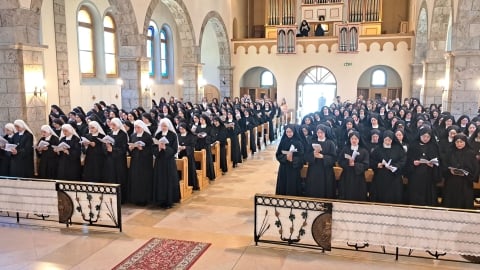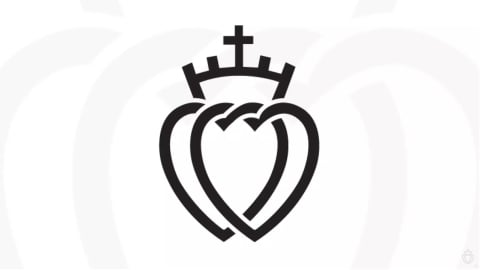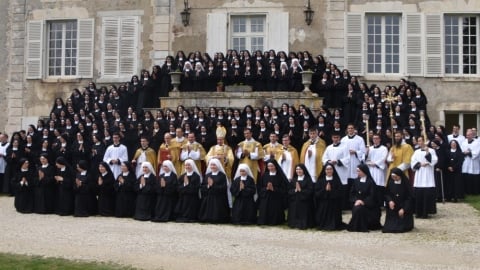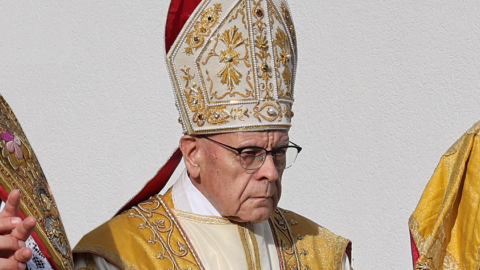The Church Welcomes a Wave of New Members in 2024
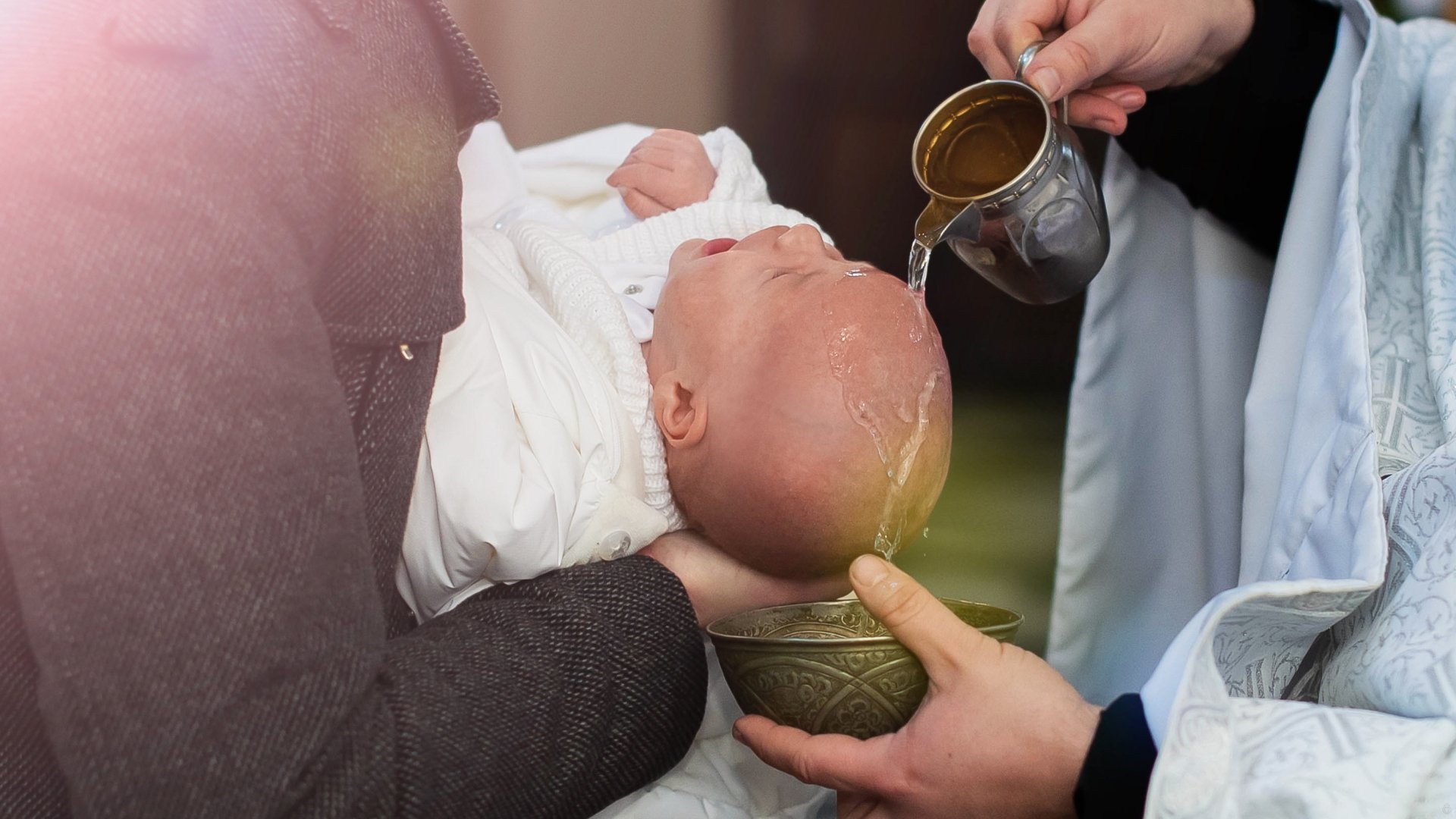
Following the wave of lockdowns, restrictions, and other public-health measures that swept through the Americas, Europe, and beyond in 2020-21 due to the COVID-19 pandemic, persons in and outside the Catholic Church expressed understandable worry that public religious observation would never recover.
For Catholics in particular, weekly Mass attendance has steadily fallen across the so-called Western world since the Second Vatican Council. In certain parts of Europe, Sunday Mass attendance is almost nonexistent. While the latest statistics reveal vitality within the African Church, Catholicism’s growth in East Asia appears to be slowing while retractions continue in North and South America.
It comes as a welcome surprise, then, that reports have surfaced over the last month of incremental but hopeful Catholic growth in parts of the West. According to the Bishops’ Conference of France (CEF), 7,135 adults received baptism at the 2024 Easter Vigil. This constitutes a 32% increase from 2023’s numbers and a greater than 51% increase from the 3,639 adults who were baptized in 2021. Concurrently, adolescent baptisms in France show hopeful growth, with the number being baptized doubling over the past year.
Anecdotal evidence suggests potential renewed growth. English Catholicism’s central church, Westminster Cathedral, reportedly had to turn people away on Good Friday after the building reached its capacity of 3,000 persons. People attending some of England’s other historic Catholic churches reported similarly strong numbers during the Paschal Triduum. On the other side of the world, the Archdiocese of Sydney, Australia rejoiced in what it called a “bumper crop” of new converts to the Faith at Easter. And while precise numbers are hard to come by at the moment, social-media platforms such as X and Instagram were replete with Easter-related messages.
In the United States, certain dioceses have reported strong growth during the Easter season. The Archdiocese of Baltimore released a statement that 663 souls entered the Catholic Church at the Easter Vigil, which represents a 50% uptick from 2023’s number of 437. The Archdiocese of Los Angeles saw 2,075 catechumens unite themselves to the Catholic Church, a number that broke the archdiocese previous record of 1,508 souls in 2016. Similarly, the Archdiocese of Galveston-Houston witnessed a 30% increase over 2023 numbers; the Archdiocese of San-Antonio was just ahead of that at 39%; and and the Archdiocese of New Orleans’s converts by rose by 48% from the previous year.
Other dioceses reporting a significant increase in persons received into the Church include the Dioceses of Fort Worth, Texas; Marquette, Lansing, and Grand Rapids, Michigan; Grand Island, Nebraska; Des Moines, Iowa; Little Rock, Arkansas; St. Augustine, Florida; and Knoxville, Tennessee. As more information is gathered, more dioceses will surely be added to this list.
While these numbers are a cause for joy, that feeling must be tempered in the light of larger trends within the Church. The crisis in vocations, for instance, is far from over. Many dioceses in the United States and Europe continue to close churches. For traditional Catholics, the post-Traditionis custodes liturgical landscape has been rendered barren in certain dioceses throughout the land. Moreover, it is not entirely clear yet why there has been such an apparently widespread increase in new members of the Church.
Because of protracted lockdowns in certain parts of the world, it is possible those desiring to join Christ’s Church delayed their catechumenate until worries over COVID-19 had largely passed. The possible unavailability during the pandemic of the Rite of Christian Initiation of Adults (RCIA)—the Roman Church’s official, albeit disjointed, pathway for the unbaptized to enter the Church—likely contributed to the strong growth in new Catholics in more recent years as well.
This may not be the full picture, of course. Mankind’s need for God never disappears, regardless of the socio-political climate. While Western “culture” may no longer be conducive to shaping hearts and minds to seek the truth, the forces of relativism, materialism, and liberalism cannot suppress this natural search forever. With respect to Catholicism in particular, many recent converts praise the Church’s moral and doctrinal clarity, even during this high point of crisis in her midst. Finally, the Eucharist—the sacrament of Christ’s love for mankind—remains central to the new life converts hope to find in the Church.
The Church has found ways to flower for centuries in poor soil before vitalizing it with the words of the Gospel and the blood of the martyrs. If the Church can build Western civilization while helping to spread its greatest spiritual and intellectual treasures, surely she can rebuild it piece by piece, soul by soul.
SSPX US District - sspx.org - 04/25/2024

